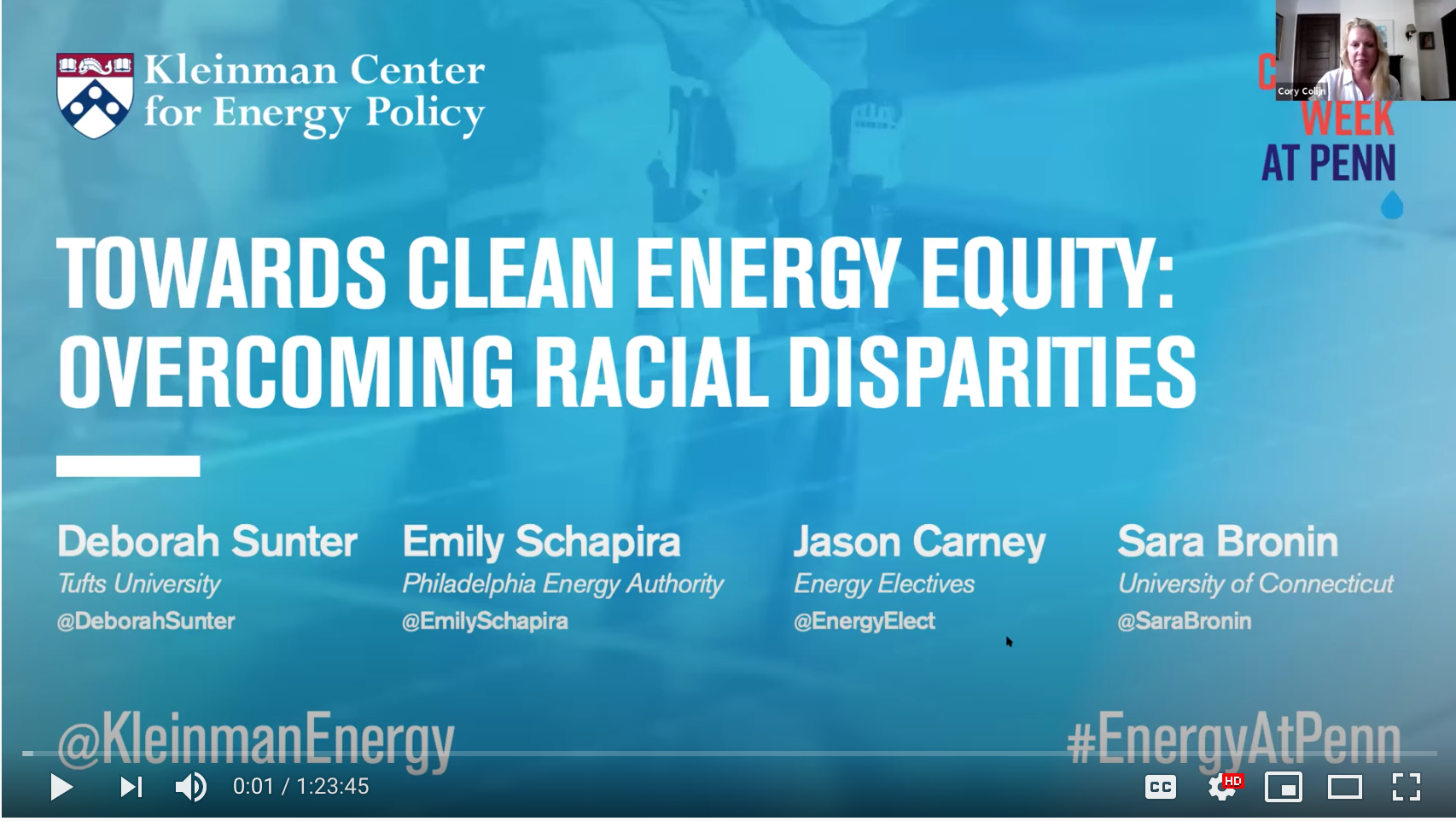
In the United States, opportunities for residents to access clean and reliable energy in their homes has improved drastically over the last decade. New technologies have improved household energy efficiency and reduced the carbon footprint of large appliances, including heating and cooling systems. In some states, households can make choices between a growing number of renewable energy suppliers, while others have the ability to produce and use their own solar energy, selling excess to the grid.
Yet, these positive outcomes are not shared equally. For example, Black and Hispanic majority census tracts show significantly less solar rooftop photovoltaics than white counterparts — even after being adjusted for income and homeownership. There are also staggering racial disparities in per-capita energy consumption, household energy expenditures, and rates of electric vehicle deployment. Understanding these disparities, their origins, and how to tackle them, is critical to designing smart and just energy policy. This panel brings together practitioners and researchers to discuss how we can more equitably distribute the benefits that advances in energy policy and technology have brought to some, but not to all.
Panelists

Deborah Sunter
Deborah Sunter is an Assistant Professor in the Department of Civil & Environmental Engineering and Department of Mechanical Engineering at Tufts University. She holds a Ph.D. in Mechanical Engineering from the University of California, Berkeley and B.S. in Mechanical and Aerospace Engineering from Cornell University. She was formerly an AAAS Science & Technology Policy Fellow at the U.S. Department of Energy and a Data Science Fellow at the Berkeley Institute for Data Science. Using computational modeling and data science techniques, her research explores the interface of technology innovation and policy for improved environmental sustainability and social justice.

Jason Carney
Jason Carney is president of Tennessee Solar Energy Association and Founder and CEO of Energy Electives. Jason received a bachelor’s degree in mechanical engineering from Tennessee State University and received a master’s degree in civic leadership from Lipscomb University.

Emily Schapira
Emily Schapira is Philadelphia Energy Authority’s Executive Director and a member of the Board. She joined PEA as Executive Director in 2016 to execute the Philadelphia Energy Campaign and Emily has been a PEA board member since 2010, as a City Council appointee.
Moderator

Sara Bronin
Sara Bronin is the Thomas F. Gallivan Chair in Real Property Law and Faculty Director, Center for Energy and Environmental Law at University of Connecticut and is a visiting scholar of the Kleinman Center for the year 2020-2021. Her expertise includes property law, land use, historic preservation, urban planning, and renewable energy. Sara has held national positions in academic associations and currently advises the Sustainable Development Code and the National Trust for Historic Preservation and serves on the board of Latinos for Heritage Conservation.

